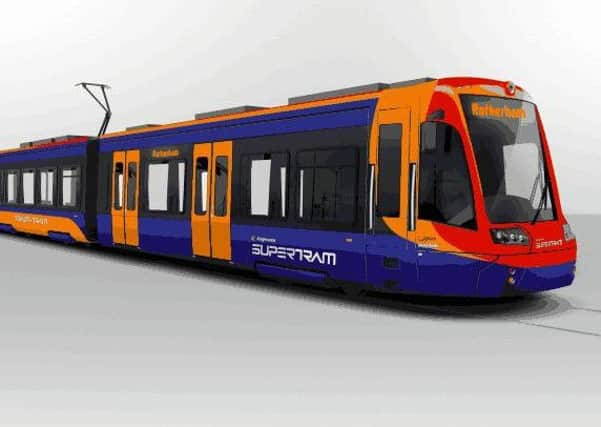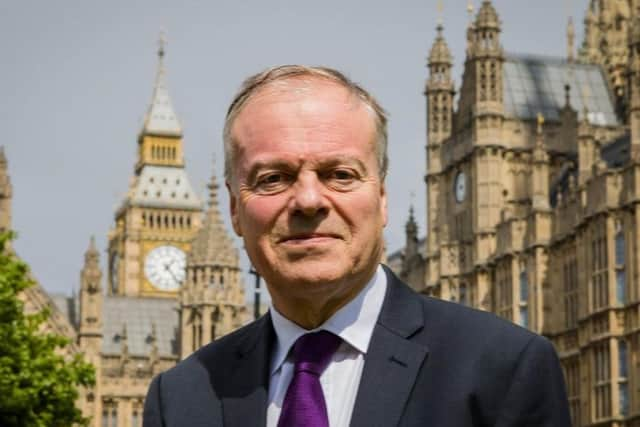South Yorkshire tram-train will cost five times budget at £75.1m


Network Rail’s work in South Yorkshire will cost £75.1m compared with an initial estimate of £15m when the Sheffield-Rotherham scheme was first approved in 2012, according to the National Audit Office (NAO).
It revealed that last July the Department for Transport’s then-permanent secretary recommended the programme be scrapped amid rising costs.
Advertisement
Hide AdAdvertisement
Hide AdPhilip Rutnam was said to have backed an argument that this would release at least £20m from the Department’s budget, but Rail Minister Paul Maynard insisted the project continue.


Tram-trains were due to begin running on street tracks and railway lines in December 2015, but the project is currently scheduled for completion by May 2018.
Sheffield South East MP Clive Betts MP (Labour) welcomed the report’s publication, saying: “It was the persistent failures of Network Rail and the Department of Transport (Dft) that led me to ask the NAO to investigate and report on precisely what has led to this significant delay in this important transport initiative.”
The project is intended to be a pilot scheme to test the concept for possible wider roll-out across the UK to reinvigorate under-used rail lines, improve access to city centres and release capacity at mainline stations.
Advertisement
Hide AdAdvertisement
Hide AdModification of the national rail network is part-funded by the Government and managed by Network Rail.


The NAO found that the Department for Transport (DfT) had initially accepted the programme’s financial benefits were uncertain.
Yet the Treasury gave it the go ahead in May 2012 on an exceptional basis to allow a more detailed evaluation of the value for money of tram-trains.
Cost increases were blamed on a number of issues such as the work being more complex than expected and the condition of railway infrastructure being worse than initially assumed.
Advertisement
Hide AdAdvertisement
Hide AdOutgoing Liberal Democrats leader Tim Farron described the project as “a total disaster from start to finish”.
He said: “The fact they can’t keep control on a flagship scheme like this shows what a total sham the Northern Powerhouse really is. This report is an auditor’s version of a character assassination. It is utterly damning.”
A number of Network Rail projects have suffered cost overruns and delays in recent years, with disruption to the electrification of the Great Western, Midland and TransPennine routes.
The DfT claimed the tram-train project will “transform services for passengers” by enabling faster journeys and reducing congestion.
Advertisement
Hide AdAdvertisement
Hide AdA Department spokeswoman said: “There will be uncertainty when developing new innovation and technology, and we are disappointed that the cost of work increased and the scheme was delayed. But this groundbreaking project is now on track and Network Rail has learned important lessons that will help the roll-out of similar schemes that will bring all of these benefits to more passengers in the future.”
Rob McIntosh, a route managing director at Network Rail, said there had been “unique issues to the UK” that had to be overcome.
“Costs and timescales have moved as the project itself has grown in scope and complexity and has had to incorporate more significant infrastructure changes than originally planned,” he said. “Good progress is being made and a new project team is now in place.”